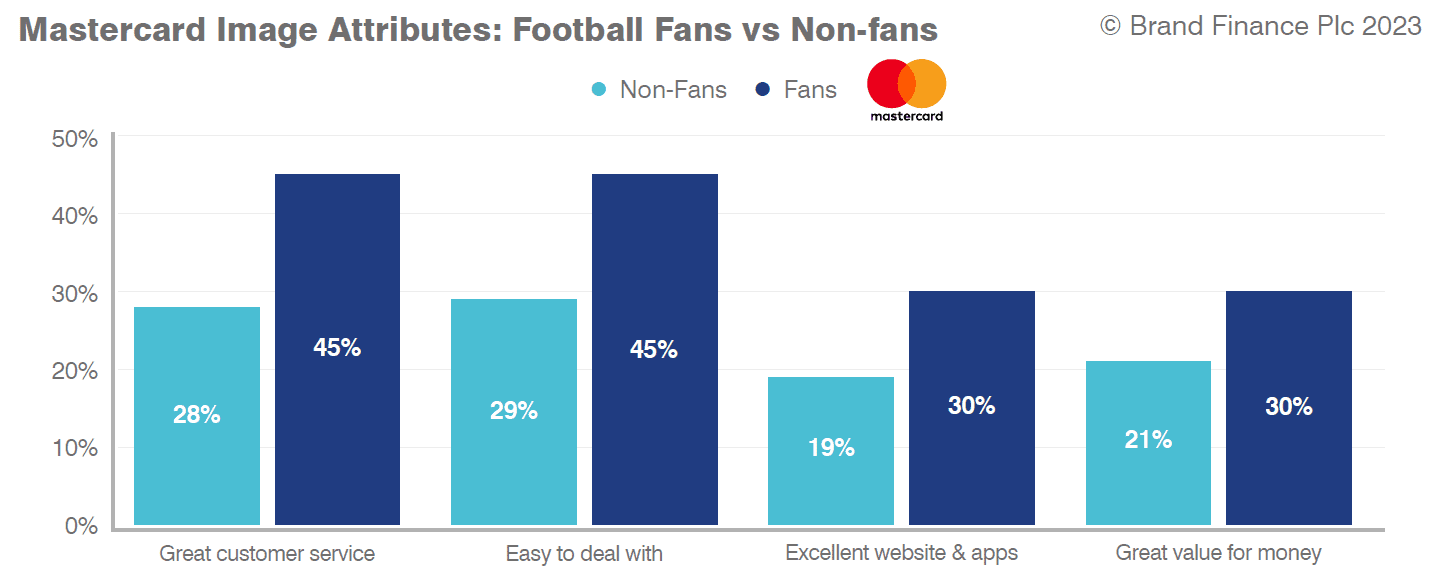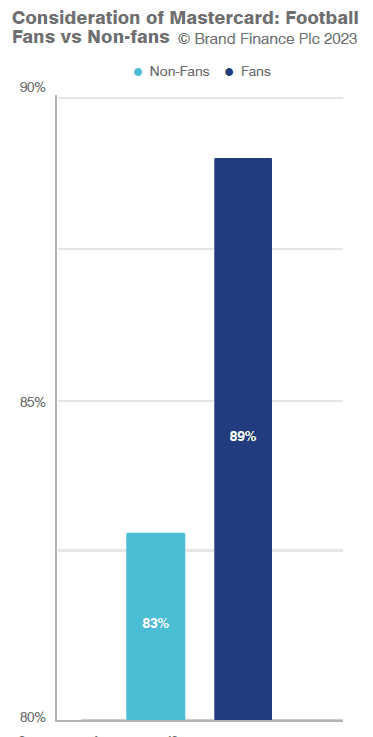
Associate Director,
Brand Finance
What are the objectives of sponsorship?
The underlying objective of sponsorship is to create positive perceptions and behaviours among stakeholders in a more effective & efficient way than would be possible with normal marketing tools. Generally this is achieved by accessing a targeted audience and aligning with the existing attributes of the rights-holder. Exactly how this functions varies considerably depending on the brand, industry, sport/category, rights-holder, and activations.
Ultimately any partnership should deliver a return on investment, which is usually considered in terms of short-term sales boost and long-term brand building benefits. The key difference for B2B brands vs B2C brands is that B2B brands tend to operate further down the brand funnel; more of the target market is likely aware of the competing players trying to solve a business problem, and the challenge is to improve consideration, usage and loyalty. This means that B2B partnerships should play a role in imparting the attributes of the rights-holders onto the brand – whether these are prestige, heritage, innovation, community engagement or even perceptions on customer service.
The effect of partnership activations
When measuring B2B partnerships we need to remember that the focus is more slanted towards brand building, and delivering long-term benefits. B2C brands can more easily target consumers to directly influence immediate purchase decisions - for example Guinness’ partnership with the Six Nations Rugby tournament targets a recognised audience, whilst also providing the stout on tap at all stadiums and therefore having a direct effect on sales. Whereas Mastercard’s partnership with the UEFA Champions League is designed to enhance their brand image through aligning their brand with “the most prestigious competition in European football”. This improvement to brand attributes will influence B2B decision makers’ consideration of the brand, ultimately leading to improved customer acquisition or retention.

Brand Finance’s 2023 Global Brand Equity Monitor study shows Mastercard’s near 30-year partnership with UEFA Champions League has had a positive impact on their overall reputation. 33% of football fans rating it a 10 for reputation, vs 27% of non-fans, but also only 10% of fans rating it a 5 or below compared to 20% among non-fans.


Brand Finance found that consideration of the Mastercard brand had an uplift of 6% among football fans. This market research is not showing respondents who have reported being exposed to / engaged with the particular partnerships, but assumes exposure among followers of the sport in general; this gives a conservative view of the impact, but we can see that the partnerships are nonetheless delivering benefits to the brand.
The next stage of measuring effectiveness is to connect these brand benefits to financial advantages for the sponsors – delivered through higher customer acquisition & retention, market share or price premiums. Brand Finance uses this methodology to calculate the financial return on investment for partners operating in any industry and engaging with rightsholders from a wide range of categories.
Other Objectives for Sponsors
Sponsorship objectives should be defined by the business strategy – for some B2B brands the focus is at the top of the funnel, on brand awareness. Recently, we have seen Saudi oil company Aramco (looking to build a global brand) and software provider TeamViewer (targeting growth following increased relevance due to the rise in remote working) delve into the world of motorsports with their partnerships with F1 and Mercedes AMG Petronas, respectively.
